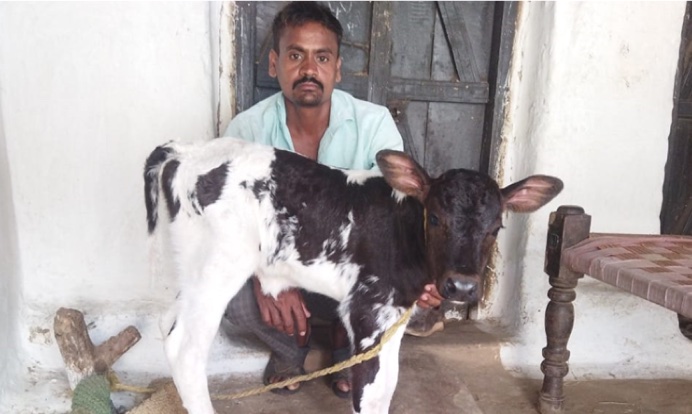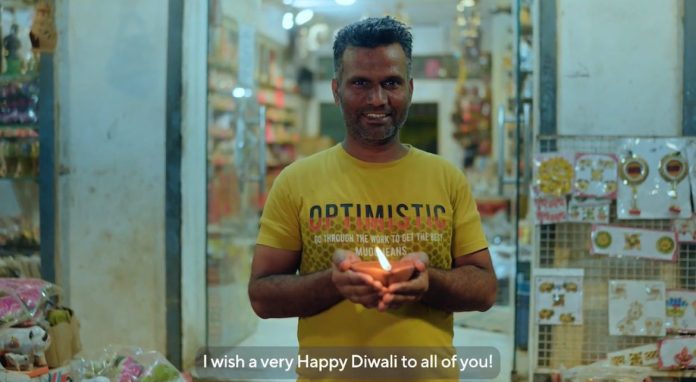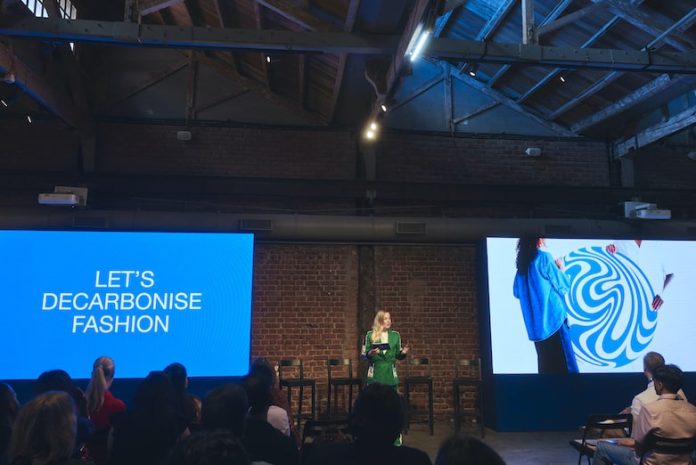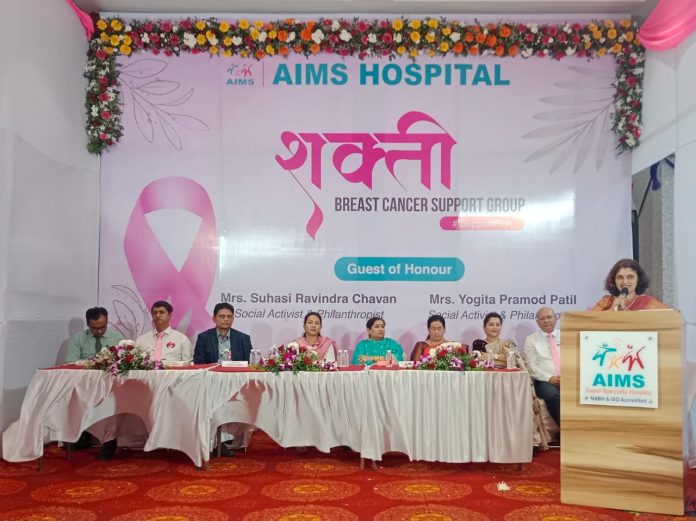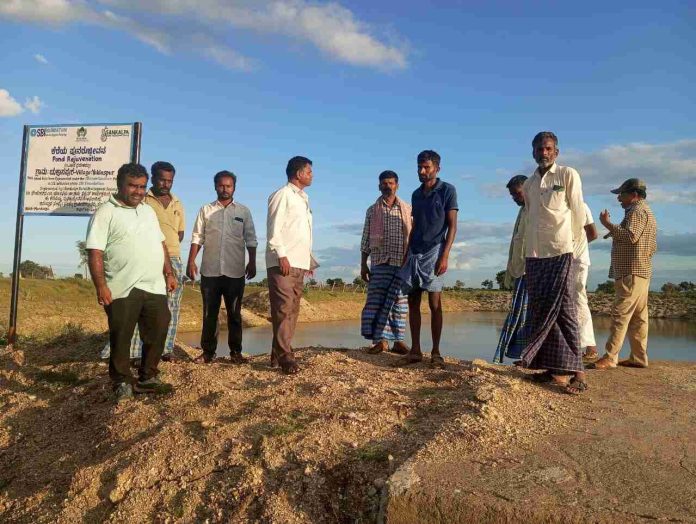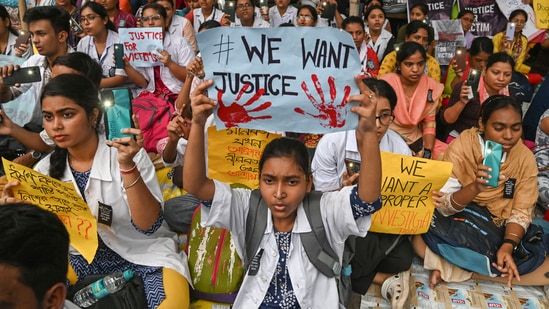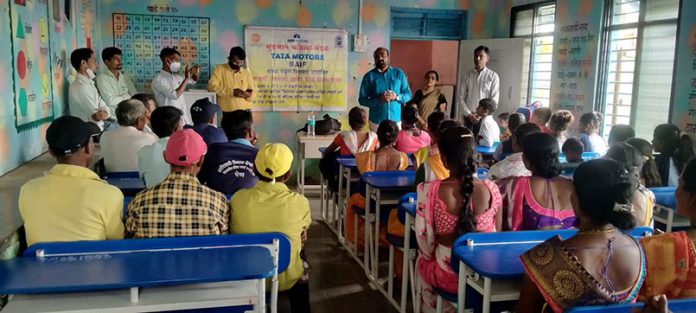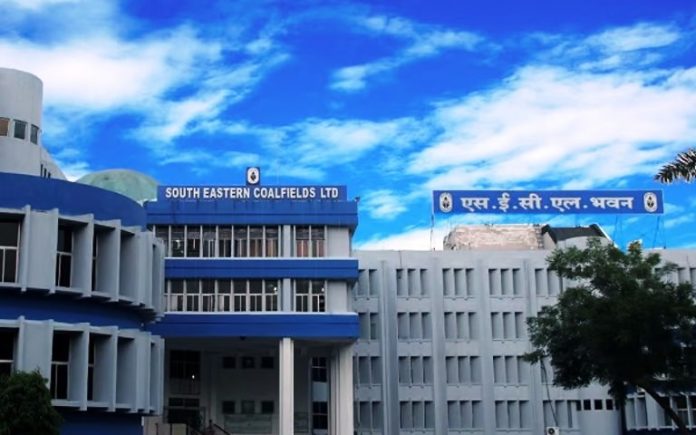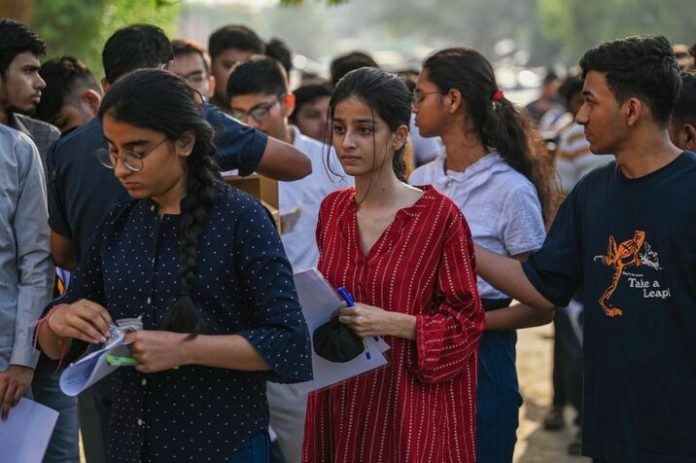CSR initiative to empower 500+ local artisans this festive season
This Diwali, Zepto continues to go heavy on its purpose of supporting local artisans, working with 50 families of the Prajapati clan, a community ofKumhars (potters) whose craft dates back to the age-old traditions of Ramayana. For generations, these artisans have hand-crafted earthen products that are integral to Indian festivals.
Zepto is championing local artisans by bringing handmade earthen Diyas directly to homes across India. Throughout the festive season, Zepto has worked with over 500 artisans, helping them sell products like Ganesh idols, Durga idols, Marapacchi dolls, and now, Diwali Diyas, through its platform. Traditionally, these artisans work tirelessly until the last minute, often selling their products on roadside stalls or door-to-door. However, with Zepto’s collaboration, these artisans are reaching a much wider audience in a more efficient and dignified way.
Pradeep Kumar, a local Diya artisan, expressed his gratitude for the partnership in this film: “We’ve been crafting Diyas since childhood, and Diwali is when all our hard work finally pays off. This year, Zepto helped us bring our Diyas to homes across the country, connecting us with a much wider audience. It’s been a game-changer for us, and I’m grateful for their support.”
Zepto Co-founder & CEO, Aadit Palicha, shared his thoughts on LinkedIn:
“We believe in empowering local entrepreneurs at Zepto, and we salute Pradeep and others who are crafting beautiful Diyas to light up Diwali. It’s an honour to help bring their work to millions of homes this festive season.”
By leveraging Zepto’s platform and demand forecasting, artisans can avoid the pressures of last-minute selling, allowing them to celebrate their own Diwali with pride. This initiative bridges the gap between traditional craftsmanship and modern consumers, enabling artisans to thrive in a competitive market. With this collaboration, Zepto aims to reach 10x more homes this Diwali than last year, ensuring that all festive needs are met.
Zepto remains committed to building a platform that supports local artisans, connecting them with a wider audience through its quick commerce model. By enabling sellers on the platform, Zepto ensures a diverse assortment of products, making traditional craftsmanship and fresh, sustainable offerings more accessible to homes in a convenient, modern way.
Disclaimer: This media release is auto-generated. The CSR Journal is not responsible for the content.
CSR: New round of Global Change Award Launched to accelerate innovation for a net-zero textile industry by 2050
The H&M Foundation today announces a significant shift in its overall strategic direction, with a new mission of promoting just and fair climate solutions for the textile industry, with the innovation challenge Global Change Award (GCA) being the first initiative to reflect this shift.
Going forward, the H&M Foundation will focus on supporting the textile industry in halving its greenhouse gas emissions every decade by 2050, while promoting a just and fair transition for both people and the planet. Therefore, GCA is now seeking innovative ideas addressing different high emission areas across the textile industry value chain, including sustainable materials and processes, responsible production, mindful consumption, and ‘wildcards’ that supports the GCA purpose. Today, only a fraction of philanthropic capital is directed to climate.
“The textile industry needs all hands-on deck if we are going to meet our climate goals by 2050, and we must ensure this transition is fair for everyone. I really believe that innovation is key to decarbonising the industry, and that the Global Change Award can play a role in identifying and growing future changemakers whose ideas can have a transformative impact if given the right support,” says Karl-Johan Persson, Board Member of the H&M Foundation.
Since its launch in 2015, 46 innovations have received support and a combined grant of 8 million euros from the GCA. While it continues to award 10 winners every year, with each receiving 200,000 EUR, there are some key updates to align the award, and its Changemaker Programme, with H&M Foundation’s new strategic focus.
“While the industry is hungry for innovation, we see that a holistic perspective to decarbonisation is often lacking, and the critical early stages of an innovator’s journey overlooked”, says Annie Lindmark, the newly appointed Programme Director for Innovation at the H&M Foundation. “The Global Change Award is now aiming to back a wider range of changemakers with early-stage innovations that can help accelerate the textile industry’s path to net-zero and equip them to build solutions that benefit both people and the planet – this is where we as a philanthropy can make a real difference.”
The textile industry has many innovation challenges and initiatives. However, the H&M Foundation identified a gap in support for innovations at idea stage, which are often seen as too risky for traditional investors and businesses. As a philanthropic organisation, H&M Foundation is more tolerant to risk and can fund and support these high-potential changemakers before they’re ready for commercial backing.
In a departure from an open application system, GCA will now operate a nomination-based process, involving a variety of actors like industry experts, research institutes, brands, garment suppliers, innovators, and non-profits. This change aims to discover changemakers who might otherwise be overlooked and to broaden the impact of the GCA.
In addition to financial support, winners will gain access to a powerful network of mentors, collaborators, and industry leaders to help bring their solutions to life. Together with long-term partners Accenture and KTH Royal Institute of Technology, H&M Foundation will invite the winners to participate in a yearlong Changemaker Programme. This programme is designed to elevate their innovations, while fostering personal growth and promoting a holistic mindset that avoids “carbon tunnel vision” and encourages solutions that benefit both people and the planet.
The nomination process for the Global Change Award 2025 opens on 23 October 2024, with winners to be announced in April 2025.
Disclaimer: This media release is auto-generated. The CSR Journal is not responsible for the content.
CSR Empowering Lives, Inspiring Hope: AIMS Hospital Launches “Shakti” Breast Cancer Support Group
In honor of Breast Cancer Awareness Month, AIMS Hospital proudly launched “Shakti,” a heartfelt support group designed to empower women affected by breast cancer. This initiative aims to provide vital assistance to patients and their families, creating a space where current patients can draw strength from those who have triumphed over the disease.
Around 150 cancer patients and survivors attended the launch event, including patients, families, and medical experts. Notable guests included social activist Mrs. Suhasi Ravindra Chavan, who served as the Guest of Honor, alongside our dedicated oncology team: Dr. Supriya Bambarkar, Director (Dept. Of Oncology), Consultant Oncosurgeon, Dr. Neemesh Lodh, Breast Surgical Oncologist, Dr. Rakesh Patil, Medical & Hemato Oncologist, and Dr. Sagar Gayakwad, consultant Radiation Oncologist.
“Shakti” focuses on educating women about breast health, encouraging self-exams, understanding diagnoses, and making informed treatment choices. With breast cancer on the rise in India, increasing awareness is crucial. Many women often miss early signs like lumps or unusual changes, leading to late diagnoses and severe consequences.
Breast cancer is one of the most common cancers affecting women across the country. Sadly, many overlook early signs like lumps, changes in nipples, or unusual pain, often waiting too long to seek help. This can have serious consequences. “Shakti,” meaning “power,” is our new support group that embodies the strength of those battling breast cancer. It offers a warm, welcoming space for patients to share their stories, find emotional support, and access essential resources. Through workshops, counseling, and peer connections, “Shakti” fosters a community of hope and resilience. Dr. Neemesh Lodh, Breast Surgical Oncologist at AIMS Hospital, emphasizes that with proper care and support, many can return to a normal life after treatment. This group is a celebration of the incredible strength of those who have faced these challenges together.
“At AIMS Hospital, we know that care goes beyond just medical treatment. With our new support group, “Shakti,” we’re committed to providing holistic support that addresses the emotional and social needs of breast cancer patients. We encourage women to perform monthly self-exams and get regular mammograms after age 35 for early detection. Our aim is to ensure no one feels alone on this journey. Together, we can inspire hope and empower each other. Remember, breast cancer is treatable when caught early, so never lose hope,” says Dr. Rakesh Patil, Medical & Hemato Oncologist at AIMS Hospital, Dombivli.
“AIMS Hospital stands at the forefront of medical innovation, not only by providing exceptional healthcare but also through its compelling community outreach initiatives. This initiative will help women facing breast cancer, to fight and overcome the disease,” concluded Mrs. Suhasi Ravindra Chavan, Social Activist and Philanthropist.
Disclaimer: This media release is auto-generated. The CSR Journal is not responsible for the content.
तालाबों की मिट्टी से बदली किस्मत, किसानों की आय में इजाफा
तालाबों की मिट्टी कितनी उपयोगी हो सकती है इसका अंदाजा इस खबर से लगाया जा सकता है। तालाबों की मिट्टी का खेतों में उपयोग किसानों के लिए वरदान साबित हो रहा है। कर्णाटक के गडग जिले में किसानों की ज़िन्दगी में इस पहल ने जबरदस्त बदलाव आया है। पहले जहां किसान एक साल में केवल एक ही फसल उगाते थे और मुनाफा सीमित होता था, वहीं अब तालाबों की मिट्टी के इस्तेमाल से न केवल खेतों की उर्वरता में वृद्धि हुई है, बल्कि फसल चक्र भी बदल गया है। अब किसान एक साल में दो फसलें उगा रहे हैं और उनकी आय में भारी इजाफा हो रहा है।
कैसे हुई खेती में क्रांति?
दरअसल एसबीआई फाउंडेशन (SBI Foundation) और संकल्प रूरल डेवलपमेंट सोसाइटी (Sankalpa Rural Development Society (SRDS) ने मिलकर कर्नाटक के गडग जिले में सामुदायिक तालाबों का कायाकल्प कर रही है जिसका दो तरीके से फायदा गांव वालों, छोटे और सीमांत किसानों को हो रहा है। Gram Saksham Project के तहत एसबीआई फाउंडेशन और संकल्प रूरल डेवलपमेंट सोसाइटी एक साथ मिलकर एक तो गडग जिले के कई गावों में जल संरक्षण को बढ़ने के लिए तालाबों के सिल्ट को निकालकर उनको गहरा करने का काम कर रही है। जिसकी वजह से बारिश के समय पर तालाब भर जाते है और जल भण्डारण को बढ़ावा मिलता है। इसके साथ ही तालाबों की मिट्टी को ऐसे खेतों में डाला जाता है जिस खेत की मिट्टी उपजाऊ नहीं है।
बढ़ गयी है मिट्टी की गुणवत्ता, उर्वरता और किसानों की आय
तालाबों की मिट्टी, जिसे कृषि विज्ञान में बेहद पोषक माना जाता है, को किसानों के खेतों में डाले जाने से खेतों की मिट्टी की गुणवत्ता में सुधार हुआ और उर्वरता बढ़ गई। इस मिट्टी के उपयोग के बाद, खेतों में नमी बनाए रखने की क्षमता बढ़ गई, जिससे फसलों की पैदावार में वृद्धि हुई। इससे पहले किसान एक साल में केवल एक ही फसल ले पाते थे, लेकिन अब वे साल में दो बार खेती कर रहे हैं। जब The CSR Journal
जनथली गांव के किसान रामप्पा रुद्रप्पा हुगर से बात की तो उन्होंने बताया कि “पहले हम सिर्फ एक फसल उगाते थे और उससे ज्यादा मुनाफा नहीं होता था। अब तालाब की मिट्टी डालने के बाद हम साल में दो फसलें उगाते हैं और हमारी आय दोगुनी हो गई है। पहले हम केवल खाद्यान्न उगाते थे, लेकिन अब हम व्यावसायिक फसलों की ओर भी बढ़ रहे हैं, जिससे हमारी कमाई में भी सुधार हुआ है।”
तालाब की मिट्टी किसानों की जमीन को नई ज़िन्दगी दी
Sankalpa Rural Development Society (SRDS) के Sikandar Meeranaik ने The CSR Journal से ख़ास बातचीत करते हुए बताया कि तालाब की मिट्टी किसानों की जमीन को नई ज़िन्दगी दी है। पहले किसानों को सिंचाई के लिए भी काफी मशक्कत करनी पड़ती थी, लेकिन अब मिट्टी में नमी ज्यादा देर तक बनी रहती है, जिससे सिंचाई की जरूरत भी कम हो गई है और अगर जरुरत पड़ती है तो तालाब से सिंचाई हो जाती है। इससे न केवल हमें पानी की बचत हो रही है, बल्कि मेहनत और खर्च भी कम हो रहा है।”
इस पहल से किसानों की आय में हुई बढ़ोतरी
इस पहल का सीधा असर किसानों की आय पर पड़ा है। पहले जहां किसान सिर्फ एक फसल से मामूली मुनाफा कमा पाते थे, अब वे दो फसलें उगाकर दोगुना मुनाफा कमा रहे हैं। इसके साथ ही, व्यावसायिक फसलों जैसे कपास, मूंगफली, और सब्जियों की खेती ने भी उनकी आर्थिक स्थिति को और मजबूत किया है। एक सर्वे के अनुसार, तालाब पुनर्जीवित करने और उसकी मिट्टी का उपयोग करने के बाद किसानों की आय में 30 से 40 फीसदी तक की बढ़ोतरी देखी गई है। किसानों का कहना है कि इससे उनके परिवारों की आर्थिक स्थिति में भी सुधार हुआ है और अब वे बच्चों की पढ़ाई और अन्य जरूरतों को बेहतर ढंग से पूरा कर पा रहे हैं।
R G Kar case: Why junior doctors in Kolkata called off their hunger strike
Protesting junior doctors of Kolkata have finally called off their 17-day-long hunger strike on Monday on the request of the parents of the trainee doctor who was allegedly raped and murdered at the R G Kar Hospital and Medical College in August this year. The decision was taken following a general body meeting of the doctors. This comes after several junior doctors were hospitalised as their health deteriorated following prolonged hunger strike.
The protesting doctors also had a meeting with Bengal Chief Minister Mamata Banerjee and voiced their demands and concerns over their security in front of the CM. The doctors have demanded better working conditions and infrastructure improvements healthcare in the two-hour-long meeting held at the state secretariat, Nabanna.
During the meeting, the Chief Minister urged the junior doctors to end their ‘fast-unto-death’, stating that most of their demands had been addressed. However, she refused to entertain their demand of removing the state Health Secretary.
“In the meeting with the CM, we did get the assurance of some directives. The common people have stood by us throughout and wholeheartedly supported us. The common people as well as the parents of our deceased sister (RG Kar hospital victim), have been requesting us to call off the hunger strike, keeping in mind our deteriorating health. We are therefore withdrawing our ‘fast-unto-death’ and also Tuesday’s total shutdown in the health sector,” one of the protesting doctors said.
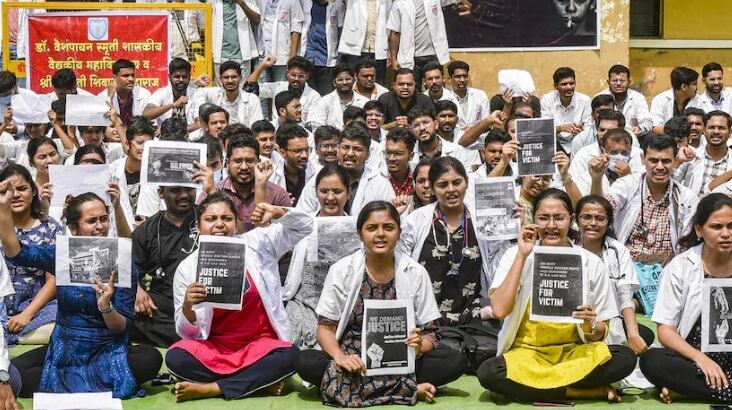
The R G Kar case and protests
A 31-year-old trainee doctor was allegedly raped and murdered inside Kolkata’s R G Kar Medical College and Hospital on the 9th of August this year. The horrific crime took place around 4 a.m when the trainee doctor went to sleep in a seminar room of the hospital during a break from her duty.
Following this, junior doctors in Kolkata went on “cease work” following the incident and have been continuously protesting demanding that the culprits be arrested and punished. They have also been voicing concerns over the safety and security of doctors and other medical professionals working in night shifts within hospital premises.
The protesting doctors had a meeting with CM Mamata Banerjee earlier in September when she assured them that some of their demands will be considered. However, the doctors started a ‘fast-unto-death’ in Dharmatala in the heart of the city from 5th October alleging that the state government did not fulfil their demands.
‘Mass Convention’ on October 26
Kolkata’s protesting junior doctors have called a “mass convention” on the 26th of October to take a call on how to proceed with their agitation. The doctors have alleged that they are not satisfied after their meeting with Chief Minister Mamata Banerjee which was held at the state secretariat, Nabanna, on Monday. Some of the junior doctors have even alleged that their demands were not discussed in detail in Monday’s meeting.
Calcutta High Court stays suspension of junior doctors, CM reacts
Meanwhile, the Calcutta high court on Tuesday stayed the suspension of 59 junior doctors of Kolkata’s RG Kar Medical College and Hospital. These doctors were suspended and 6 doctors were expelled for protesting against the alleged rape and murder of a trainee doctor inside the hospital on the 9th of August.
Lawyer Arkaprava Sen, representing the suspended junior doctors told the media, “The court passed the stay order after we argued that the suspension and expulsion orders were in complete violation of natural justice.”
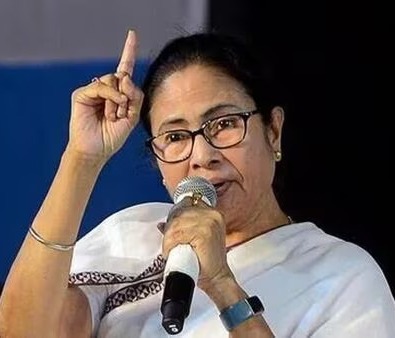
Bengal CM Mamata Banerjee has also expressed disappointment at the college authority’s decision to suspend and expel protesting doctors. She said, “At R G Kar Medical College and Hospital, several junior doctors and medical students were suspended without following proper procedures and rules. How can these students or resident doctors be suspended just on the basis of complaints? Who gave the college authorities the right to take such a step without informing the state government? Isn’t this a threat culture?”
The Ultimate CSR Report of Tata Motors
Tata Motors Limited is a leading global automobile manufacturer of cars, utility vehicles, pick-ups, trucks and buses. Tata Motors’ focus on engineering and tech-enabled automotive solutions, catering to the future of mobility, has made it India’s market leader in commercial vehicles and one of the top four in the passenger vehicles market. From its brand promise of ‘Connecting Aspirations’ arises the Company’s innovation efforts that aim at developing pioneering technologies that are both sustainable and well suited to the evolving aspirations of markets and customers.
In FY 2023-24, Tata Motors spent a total of Rs. 21.59 crore on its CSR initiatives, empowering the lives of over 10.03 lakh people across the country. Moreover, employees of Tata Motors volunteered for 1.17 lakh hours, improving the reach of the company’s CSR. Tata Motors, in FY 24, through its CSR interventions, could reach one million plus underserved community members across the country.
Tata Motors’ CSR initiatives are strategically aligned with the Common Minimum Programme (CMP), ensuring that their developmental efforts benefit communities across India while also catering to local interests through Location Specific Projects (LSP). When it comes to CSR, they specifically focus on health, education, employability and environmental protection.
Tata Motors’ CSR also ensures a due share for Scheduled Caste, Scheduled Tribes (SC and ST), women, and encourages employees to contribute to social causes through volunteering and disaster response activities.
1. Healthcare
1.1 Arogya
Tata Motors has been actively engaged in corporate social responsibility (CSR) initiatives, with a strong focus on healthcare. Their flagship program in this domain is Arogya, a health initiative designed to combat malnutrition among children aged 0 to 6 years.
Under the Arogya program, Tata Motors strives to make a positive impact on the health and well-being of the community. A significant portion of the initiative involves providing supplementary diets and supplements to address the nutritional needs of young children during their formative years. Beyond just the provision of resources, the program is geared towards fostering behavioural changes within communities, particularly targeting young mothers and parents.
Awareness sessions play a crucial role in the Arogya initiative, aiming to educate and empower communities on essential aspects of healthcare. Additionally, the program extends support through antenatal and postnatal services, recognizing the critical role these stages play in shaping the health of both mothers and infants.
To further enhance the reach and impact of the Arogya program, Tata Motors has implemented curative healthcare services. These services include diagnosis, administration of generic medicines, and consultations, ensuring that communities receive comprehensive and accessible healthcare.
The Arogya initiative has benefited over 5.7 lakh healthcare beneficiaries as claimed by the company in its latest Annual Report. This commitment underscores the company’s dedication to addressing health challenges and making a meaningful difference in the lives of those in need.
2. Education Initiatives
The Indian Education System is one of the largest in the world, with more than 1.5 million schools, 8.5 million teachers and 250 million children from varied socio-economic backgrounds. The pandemic resulted in 250 million students being affected due to school closures.
2.1 Vidyadhanam Programme
Tata Motors’ Vidyadhanam initiative employs a comprehensive strategy to enhance the learning outcomes of secondary and higher secondary government school students.
Vidyadhanam encompasses various targeted programs to uplift the education standards. Specifically, the programme includes special coaching classes for secondary school students and coaching sessions for those preparing for Medical and Engineering entrance examinations at the senior secondary level. In addition to academic support, Vidyadhanam extends need-based scholarships to meritorious students facing financial challenges.
To create a holistic educational experience, Tata Motors conducts sports and co-curricular activities, along with sessions on value-based life skills. The programme also addresses gaps in school infrastructure, contributing to the establishment of a positive and conducive learning environment in government-run public schools.
In the FY 2024, over 1.5 lakh children have been educated through the Vidyadhanam programme.
2.2 ENABLE Initiative
The Engineering and NEET Admission Bridge Accelerated Learning Engagement (ENABLE) initiative of Tata Motors is an e-enabled remote learning programme that grooms and coaches students of Standards XI and XII from 477 Jawhar Navodaya Vidyalayas (JNVs) across the country to appear for JEE and NEET competitive examinations, for Engineering and Medical colleges, respectively.
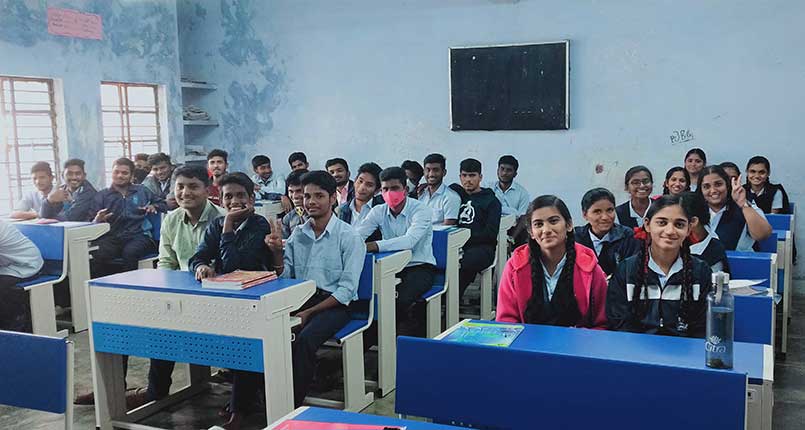
JNVs are co-educational free residential government schools that house talented and meritorious students from Rural India and are among the highest-ranking CBSE schools. Its central governing committee, the Navodaya Samiti (NVS), has successfully nurtured academic aspirations among the students by ensuring 100% of their students clear the CBSE board exams. However, training JNV students for leading professional institutes was a major challenge because private coaching classes for medical entrance tests and IIT JEE is unaffordable for the students. Tata Motors acknowledged this gap and joined hands with NVS to provide JEE and NEET coaching to all JNV students from the science steam across India via the virtual mode
It began with a residential Centre for Excellence in Puducherry in 2014, later expanding to ~80 plus schools in 2019 by offering advanced coaching during the vacations (Summer and Winter) with rigorous doubt-solving undertaken during the rest of the year. This programme went entirely virtual in 2021 post the Pandemic. Remote learning offered by Tata Motors now reaches 477 JNVs in 26 states and eight UTs. It was Tata Motors’ agility in responding to the lockdown and school closure that led to the inception of this remote learning model that addressed the learning gaps and digital divide among JNV students.
The teachers, deployed by knowledge partners Avanti Fellows and Ex Navodayan Foundation, broadcasted the classes to students’ homes with homework and weekly tests during the COVID lockdown and the at-home learning phase. Now with in-school learning commencing, classes are conducted and broadcast live through YouTube by master teachers. The programme reaches out to each individual to ensure attendance and monitor performance. Telegram app and WhatsApp are used extensively for grouping, communicating, doubt-solving, etc. Teachers are constantly available online to respond to the queries of students.
3. Employability Initiatives
India’s employability index improved from 45.97% in 2020-21 to 46.2% in 2021-22. The gender gap in employability is also improving, with the pool of employable women steadily rising 51.44% of women are highly employable, while 45.97% of men are highly employable.
Tata Motors provides employability skill training, especially to youth who dropped out of school in three areas; Auto and technical Trades, Non-Auto Training as well as Agri and allied Training.
3.1 Kaushalya Programme
Tata Motors demonstrates its commitment to skill development through the CSR program, Kaushalya, which specifically targets unemployed youth. The program encompasses a range of skill development activities in auto trades, non-auto trades, agriculture, and allied activities.
Operating under the ‘Learn and Earn’ model, Kaushalya focuses on training students with ITI/12th pass background, tailoring the curriculum to meet the needs of the automotive industry. Upon completing the diploma, these students find employment opportunities with auto dealers, retail networks, vendors, and channel partners.
In the fiscal year 2024, 31,500 trainees benefited from the initiative. Notably, the program emphasizes gender diversity, with 23% of the enrolled students being female.
Beyond youth skill development, Tata Motors extends its CSR outreach to community-based groups of women and farmers. These initiatives provide opportunities for these groups to generate supplemental income through agriculture, contributing to broader community welfare.
3.2 Learn Earn and Progress ( LEAP )
The Learn Earn and Progress Programme (LEAP) imparts automotive skills (service technician) to youth from underprivileged communities. A flagship programme of the Company has grown from being available at two institutes when initiated in 2013-14 to 2021 being available at 60 institutes, with a footprint across 16 states. Preference is given to youth who have dropped out from Standards X and XII, who, if they remain unskilled and unemployed, may be susceptible to unlawful activities.
Deployed via a public-private partnership model, LEAP is offered at member Industrial Training Institutes (ITIs) under Skills for Progress (SKIP), Tata Motors dealers, and Authorised Service Stations (TASS).
Trainees receive theoretical knowledge at the ITIs for three months, followed by nine months of on-the-job training with a stipend provided by Tata Motors and TASS. Once they complete their training, youth are assessed and certified by the Automotive Skill Development Council (ASDC).
3.3 Skilling the Rural Women
Rural women were forced to compete with men for daily wage labour opportunities because of the job losses, rise in unpaid domestic work, limited or no work opportunities for the men of the house and limited mobility Covid-19 pandemic. Families were surviving on scarce resources, and the sudden influx of job seekers within the village after the return of migrants imposed inordinate mental and physical trauma on rural women. The women of the Ahmedabad district near the Sanand plant of Tata Motors were no different.
The adverse economic impact on them was the driver for the Company to bolster an already popular Non-Auto Trade Training programme of the Company, to provide much-needed succour. The Company’s skill development and vocational training courses helped women in the district become employable, benefit from opportunities and attain financial independence.
The Company began actively promoting training under Kaushalya’s Sewing Machine Operator (SMO) programme in the villages under the Bavla & Viramgam blocks of Ahmedabad district. Initially, only a handful of girls and women obtained permission from their families to enrol despite many being willing to join. Their families were apprehensive about them living away from home for the residential training programme. Some even doubted their ability to acquire a new skill. But once the Tata Motors team counselled their parents and explained the future prospects of the women to their families, persuading them to enrol at the training centre, a wondrous journey began for the women.
Any apprehensions that the trainees held of their own capabilities were erased on the first day of training, which focussed on instilling confidence in these rural women and making them believe in their basic abilities. Once all impediments to their progress were removed, the women thrived; their zeal to learn saw them attempt a wide range of garments in addition to acquiring the skill of running a business.
A group of confident 215 women finished the Sewing Machine Operator training successfully, marking the first step towards self-reliance. Of them, 102 were recruited by Arvind Mills at a starting salary of Rs. 9000/- per month. But once again, they faced the challenge of obtaining permission from their families to go out to work. Their struggle to break the shackles of dogma was compounded by the daily struggle to get to work and spend the day away from home. But as the women grew and began earning, these challenges soon ebbed away as family members appreciated the financial benefits of a stable income, and the members of the community acknowledged the benefit of having confident, upwardly mobile, aware women within them.
4. Environment Conservation Initiatives
Vasundhara – Making India greener
The company is working to minimise its impact on the environment through a range of green initiatives like promotion of renewable resources, creation of carbon sinks through large-scale sapling plantation, construction of water conservation structures and raising awareness among communities.
In the FY 24, 11.3 lakh trees have been planted under this initiative while 1.47 lakh people have been sensitised on environmental issues.
Tata Motors has developed a unique, nationwide participatory model to plant over one million trees to benefit 4000 farmers across its locations. Partners in this process are the Government, beneficiary communities, NGO partners and the Company. The aspirational target is to ensure that in the next five to 10 years high, yielding fruit trees begin reaping economic benefits for tribal communities, providing them with food and income security.
Amrutdhara – For drinking water
The Amrutdhara programme focuses on ensuring water security in rural areas and tribal hamlets with an aim to reduce seasonal diseases like scabies and dysentery, along with improved water, health and sanitation practices. The project has also reduced the burden on women, who previously had to travel long distances to fetch water, resulting in increased girls’ enrolment in rural schools.
Tata Motors partnered with Government of Maharashtra to address the needs of the water stressed regions in Palghar and Pune belt.
Planet Regenerate
Tata Motors has adopted the strategy of ‘Planet Regenerate’ to positively transform the impact of its business on the climate, on resource use and on nature and biodiversity. The company aims to be carbon net zero by 2039 through the decarbonisation of our manufacturing and operations, our supply chain and vehicles in use. To provide a pathway towards this long-term aim, the company has published science-based targets in March 2022, for ambitious CO2e reduction by 2030.
5. Rural Development
In rural development, the company deploys the Partnership Convergence Model, whereby we leverage the available resources of an area and drive development through convergence with government schemes. It also utilises government schemes like MNREGS to make an impact at scale across India. The company has taken up Integrated Village Development Programme (IVDP) in the states of Jharkhand and Maharashtra.
In the year 2023-24, 10,03,943 beneficiaries were covered through the Company’s CSR programmes.
SECL advances its digital push during Special Campaign 4.0
Chhattisgarh, India: South Eastern Coalfields Limited (SECL), Coal India’s second-largest subsidiary, has made significant strides in its digital transformation as part of the Special Campaign 4.0. With a focus on innovation, inclusivity, and operational efficiency, SECL has introduced a series of digital initiatives to streamline processes, enhance collaboration, and foster a culture of continuous learning within the organization.
CMD Dashboard: A Unified Platform for Task Monitoring and Collaboration
SECL’s CMD Dashboard is a comprehensive online platform designed to monitor various tasks and projects across SECL’s headquarters and operational areas. The dashboard enables users to raise requirements with any department and track their requests in real-time. It provides an overview of new, in-progress, and delayed tasks, fostering greater transparency, collaboration, and efficiency across SECL’s inter-company operations.
Digital Land Acquisition Process with LAMS
SECL has also digitalized its land acquisition process through the Land Acquisition Management System (LAMS), which simplifies and expedites the traditionally complex land acquisition procedures. Notably, Khodri village, under the Kusmunda megaproject, has become one of the first villages to complete an end-to-end digital land acquisition using LAMS.
Abhimanyu E-Learning Platform: Fostering a Culture of Knowledge and Skill Development
Following the successful launch of the Abhimanyu E-magazine last year, which promoted knowledge sharing among SECL employees, SECL is now introducing the Abhimanyu E-learning Platform. This platform offers employees an online space for collective learning, knowledge-sharing and skill development enhancing their professional development.
Online Grievance Redressal: Enhancing Citizen-Centric Services
In line with Special Campaign 4.0’s focus on citizen-centric practices, SECL is proactively advancing its online grievance redressal systems. With no pending grievances over 30 days, the company has streamlined its complaint resolution process, ensuring quicker redressal.
Driving Digital Transformation with In-House Web Apps
SECL has also developed various in-house web applications to drive its digital transformation. Key apps include CSR app, which tracks corporate social responsibility initiatives; Chirayu app, which facilitates seamless medical referrals and the Vidhik app, which provides an overview of legal matters. These platforms reflect SECL’s commitment to creating tailor-made, efficient digital solutions that meet the unique needs of its workforce and operations.
Through these initiatives, SECL is advancing its digital push, contributing to the overall vision of a digitally empowered Coal India. Special Campaign 4.0 has been a catalyst in SECL’s journey toward greater innovation, transparency, and operational excellence.
Disclaimer: This media release is auto-generated. The CSR Journal is not responsible for the content.

